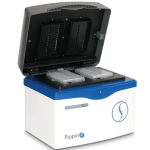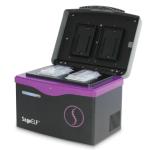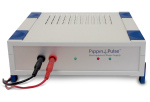Last year, we posted a story about an international team of scientists who embarked on a mission with Brazilian researchers to study the dangerous mosquito-borne Chikungunya virus (“Tracking Chikungunya: New Study Traces Outbreak Path”- we were pleased to donate a Pippin Prep to the effort.)
Recently the team published a new study in Science, having deployed NGS to elucidate the epidemiology of the Yellow Fever virus in Brazil: “Genomic and epidemiological monitoring of yellow fever virus transmission potential”. According to the authors, virological surveillance requirements are to “ (i) track epidemic origins and transmission hotspots, (ii) characterize genetic diversity to aid molecular diagnostics, (iii) detect viral mutations associated with disease severity, and (iv) exclude the possibility that human cases are caused by vaccine reversion.” By sampling humans and non-human primates (NHP) across the state of Minas Gerais, the epicenter of a 2017 outbreak, the researchers analyzed how the virus spreads through space, between humans and NHPs, and the “contribution of the urban cycle”. The authors note that this type of real-time monitoring can contribute to global efforts to eliminate future epidemics – and one would assume, potentially save lives.
Our minor contribution to this work was based on outreach from Antonio Charlys Da-Costa, who had used a Pippin Prep as part of his studies at Dr. Eric Delwart’s lab at the UCSF Blood Systems Research Institute. Dr. Da-Costa, now at the Sao Paulo Institute of Tropical Medicine, was able to marshal resources from a number of other suppliers for this cause, including Illumina, Zymo Research, and Promega (surely there were others, apologies for the non-mention). Congratulations to the whole team, it’s inspiring to see such diverse institutions and agencies pulling these large-scale efforts together – and individuals like Antonio who went the extra mile.
An interesting side note, a number of other important viral genomic findings were also published during this time by a consortium of Brazilan labs in collaboration with Dr. Delwart and UCSF:
Wuhan large pig roundworm virus identified in human feces in Brazil





